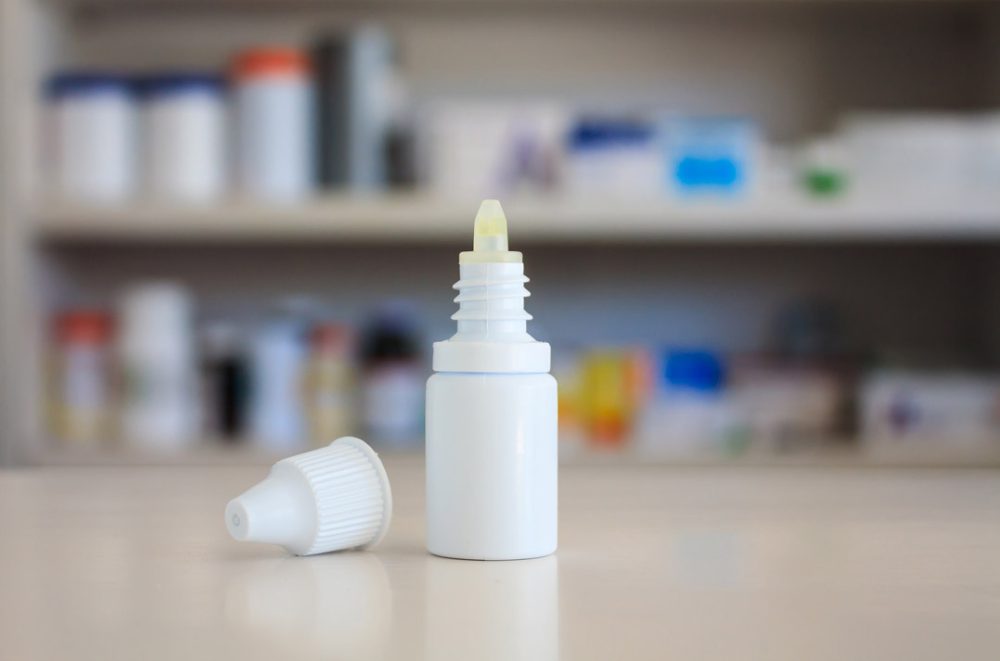Advertisment
Aston Pharmacy School researchers develop new technique mixing oil and water to improve drug delivery

A team of researchers from Aston University has developed a new technique that could be a game changer for the medical and drinks industries.
The technology enables insoluble drug/oil to be dissolved in water. The technique is novel because it doesn’t just mix the two together to make an emulsion, it makes oil soluble in water and has the potential to revolutionise a variety of medical treatments and improve drug delivery.
The technique was developed with Max Bio+ a spin out company founded by Professor Sunil Shah, a consultant ophthalmologist and professor at Aston University, and philanthropist Sean Ngu.
MaxBio’s technology is based on the synthesis of composite particles which fall under the broad category of nanoencapsulation (the process of encapsulating substances with various coating materials at the nanoscale range). The nano composite particles comprise of synthetic polymers and lipid molecules which provides a unique environment to improve drug solubility and control the release.
The novelty of the new technology is the composition of the delivery system as well as the simplicity and flexibility of the manufacturing process to synthesize such systems. This is an emerging area of research which is very much in its infancy and is likely to grow in the next decade.
The research team, which was led by Professor Afzal R Mohammed and Dr Daniel Kirby from Aston Pharmacy School and Professor Sunil Shah from the School of Optometry, started its research by looking at eye drops because there was sufficient evidence that the anti-inflammatory, anti-microbial, anaesthetic and analgesic properties of cannabidiol (known as CBD) could help patients with dry eyes.
The team was challenged with how to get the CBD delivered to the eye – when dropping oil directly onto the eye was not an option. Whilst creating the eye drops the researchers discovered a new way of creating a soluble CBD product by making the oil completely soluble in water. This technique was found to be ideal for eye drops – and a wide range of other applications.
They also found that the technique works just as well with any oil-based product, opening the door to a range of new products and breakthroughs in the future. For example, the researchers are now looking at the delivery of insulin for diabetics.
Laboratory testing has indicated that Max Bio+’s technique makes CBD much easier for the body to absorb. When taken via the mouth, it gives up to six times greater absorption of the same amount of CBD into the body. Max Bio+’s resulting CBD liquid is 25,000 times more soluble than standard CBD.
Professor Afzal R Mohammed, Professor of Pharmaceutics and Associate Dean of impact and knowledge exchange at Aston University, said: “We are delighted to work with MaxBio+ on this transformative project. Our work at Aston University has led to the development of a novel composite nano particle system which has the potential to deliver a broad range of poorly soluble compounds that have a controlled release.
“This is a great exemplar of translational research at Aston Pharmacy School and highlights how our business partnerships can deliver real world impact. It feels even more significant as we celebrate 100 years of pharmacy education and research at Aston University this year.”
Dr Daniel Kirby, Head of Pharmaceutical Sciences at Aston Pharmacy School, said: “An innovative partnership such as this one epitomises what we are striving to achieve: engaging with industry partners to ensure that our research has impact, relevance and meaningful benefits.
“The outputs of the research thus far have exceeded our own expectations, with enormous potential to have significant reach into a wide range of applications and markets, benefitting patients and consumers alike, especially within the exponentially increasing area of CBD products.”
The new technique is used to create a clear, tasteless, odourless product manufactured without alcohol, or heat. The clear CBD liquid can then form the basis for a variety of products including drinks, drug delivery, inhalers, food, and sports recovery.
The researchers also found that the liquid can be freeze-dried to create a powder making transport easier – further opening up the range of potential applications.
Professor Sunil Shah, consultant ophthalmologist and professor at Aston University, said: “This breakthrough in mixing oil and water is a genuine gamechanger. Just imagine how it can change the health industry by allowing the oral delivery of many drugs that currently have to be injected. Insulin a prime example. This could spell the end of painful injections for thousands of diabetics.
“Then there are the eye drops and myriad ways to add CBD to food and beverages without compromising on taste.”
Using the new technique, Professor Shah and his team are working on CBD eye drops, CBD beer and looking at ways that insulin delivered under the tongue could help diabetics.





